
The Enchanted Wilderness of Serra da Lousã
Nestled in the heart of Portugal, Serra da Lousã is a treasure trove of natural beauty and rich heritage. This stunning mountain range offers a perfect escape for nature lovers and adventure seekers alike. With its lush forests, cascading waterfalls, and picturesque schist villages, Serra da Lousã is a paradise waiting to be explored. The region's well-maintained hiking trails snake through dense oak and chestnut forests, leading to breathtaking viewpoints. Along the way, you might encounter the occasional wild boar or deer, adding to the area's untamed charm. The fresh mountain air and tranquil surroundings provide an ideal setting for a peaceful retreat. One of the highlights of Serra da Lousã is its charming schist villages, such as Talasnal and Cerdeira. These ancient settlements, with their stone houses and narrow cobbled streets, offer a glimpse into a simpler, bygone era. Wander through these villages and discover local crafts, traditional cuisine, and friendly locals eager to share their stories. For those with a taste for adventure, Serra da Lousã boasts excellent mountain biking trails and opportunities for rock climbing. The region's diverse flora and fauna make it a haven for birdwatchers and wildlife enthusiasts. Whether you're seeking relaxation or excitement, Serra da Lousã promises an unforgettable experience.
Local tips in Serra da Lousã
- Wear sturdy hiking boots for the trails; the terrain can be rugged and uneven.
- Visit the schist villages during weekdays to avoid the weekend crowds.
- Pack a picnic and enjoy lunch at one of the many scenic viewpoints.
- Bring binoculars for birdwatching; the region is home to many rare species.
- Check the weather forecast before your trip, as conditions can change rapidly in the mountains.
The Enchanted Wilderness of Serra da Lousã
Nestled in the heart of Portugal, Serra da Lousã is a treasure trove of natural beauty and rich heritage. This stunning mountain range offers a perfect escape for nature lovers and adventure seekers alike. With its lush forests, cascading waterfalls, and picturesque schist villages, Serra da Lousã is a paradise waiting to be explored. The region's well-maintained hiking trails snake through dense oak and chestnut forests, leading to breathtaking viewpoints. Along the way, you might encounter the occasional wild boar or deer, adding to the area's untamed charm. The fresh mountain air and tranquil surroundings provide an ideal setting for a peaceful retreat. One of the highlights of Serra da Lousã is its charming schist villages, such as Talasnal and Cerdeira. These ancient settlements, with their stone houses and narrow cobbled streets, offer a glimpse into a simpler, bygone era. Wander through these villages and discover local crafts, traditional cuisine, and friendly locals eager to share their stories. For those with a taste for adventure, Serra da Lousã boasts excellent mountain biking trails and opportunities for rock climbing. The region's diverse flora and fauna make it a haven for birdwatchers and wildlife enthusiasts. Whether you're seeking relaxation or excitement, Serra da Lousã promises an unforgettable experience.
When is the best time to go to Serra da Lousã?
Iconic landmarks you can’t miss
Praia das Rocas
Experience the breathtaking beauty and luxury of Praia das Rocas, a premier resort hotel in Portugal's stunning Castanheira de Pêra region.
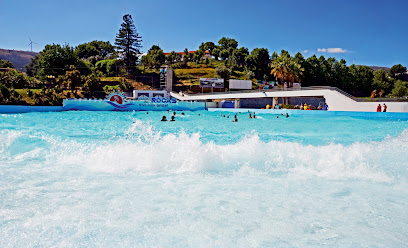
Castle of Lousã
Discover the rich history and breathtaking views at the Castle of Lousã, a stunning medieval fortress nestled in Portugal's scenic landscape.
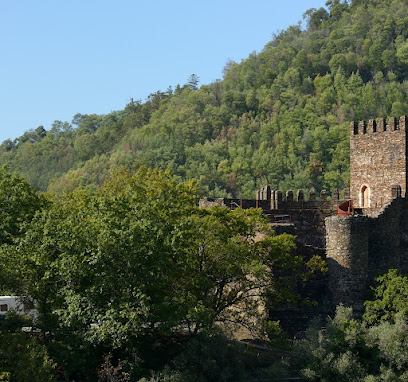
Ecological park Serra da Lousã
Explore the tranquil beauty of Ecological Park Serra da Lousã, a must-visit eco-friendly destination in Portugal for nature lovers and families.
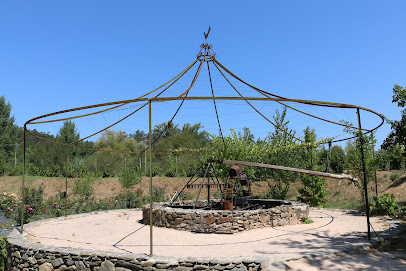
Trevim Swing
Trevim Swing: A thrilling adventure in Lousã, Portugal, where stunning views and excitement meet for an unforgettable experience.
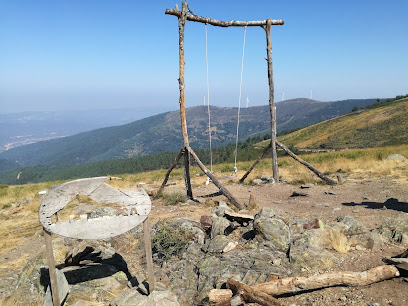
Castle of Penela
Discover the enchanting Castle of Penela, a historical gem in Portugal offering breathtaking views and a rich tapestry of medieval heritage.
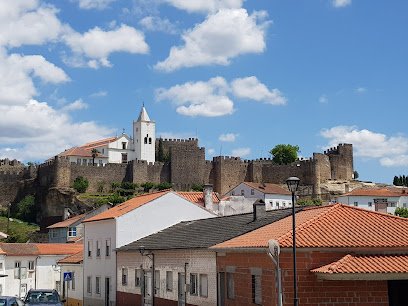
Candal (Aldeias do Xisto)
Experience the breathtaking beauty and cultural richness of Candal, a hidden gem in the heart of Aldeias do Xisto, Portugal.
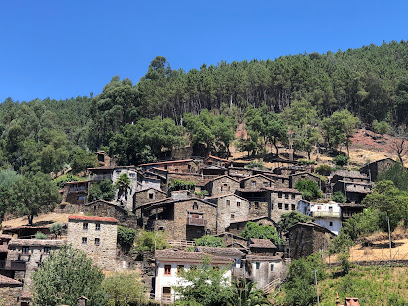
Fragas de São Simão
Explore the stunning landscapes and rich biodiversity of Fragas de São Simão, a top natural attraction in Portugal for outdoor enthusiasts and nature lovers.
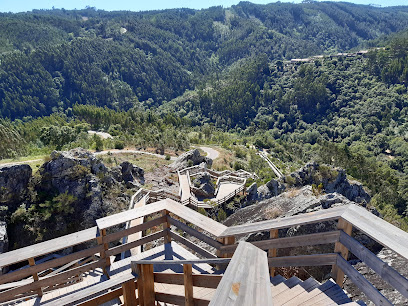
Cabril do Ceira
Discover Cabril do Ceira, Portugal's secret paradise of crystal-clear waters and breathtaking landscapes, perfect for adventure and relaxation.
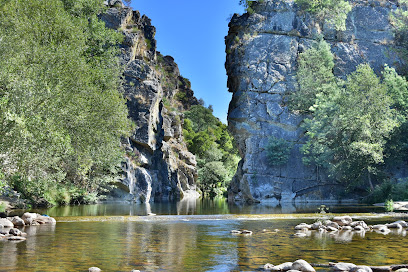
Praia Fluvial da Senhora da Graça
Experience the serene charm of Praia Fluvial da Senhora da Graça, a stunning lake shore swimming area in Serpins, Portugal, perfect for relaxation and adventure.
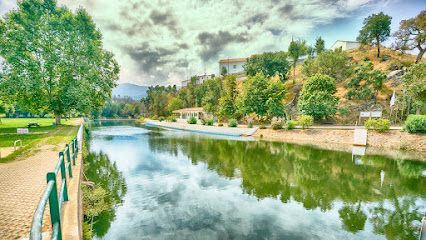
Miradouro do Penedo da Saudade
Discover the enchanting Miradouro do Penedo da Saudade, a tranquil garden in Coimbra offering breathtaking views and rich history for every traveler.
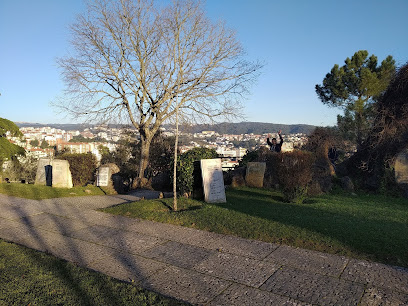
Casal Novo (Aldeias do Xisto)
Experience the serene beauty and traditional charm of Casal Novo, a quaint housing complex in the enchanting Aldeias do Xisto region of Portugal.
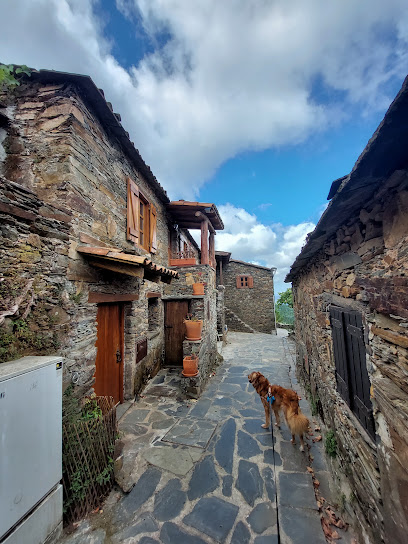
Isto é Lousã
Explore the stunning landscapes and rich cultural heritage of Lousã, a hidden gem in Portugal perfect for nature lovers and history enthusiasts.
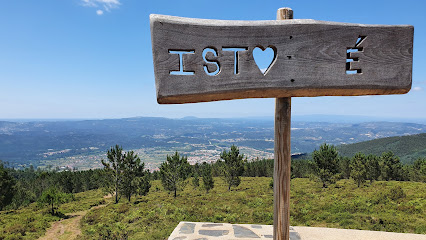
Cerdeira - Home for Creativity
Discover artistic inspiration and tranquility at Cerdeira - Home for Creativity, a unique hotel nestled in the scenic Lousã mountains of Portugal.

Escadas Monumentais da Universidade de Coimbra
Explore the historic Escadas Monumentais da Universidade de Coimbra, a stunning blend of architecture and culture in the heart of Portugal's oldest university.
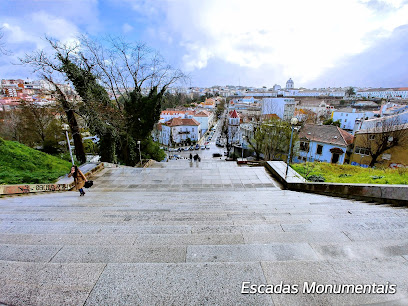
Terreiro das Bruxas
Explore the serene beauty and folklore of Terreiro das Bruxas, a captivating park in Lousã, Portugal, perfect for picnics and nature lovers.
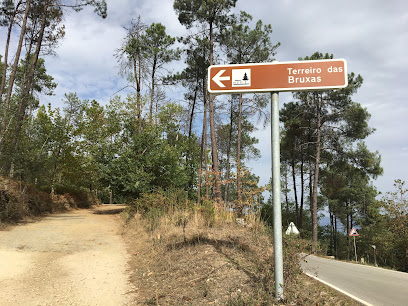
Unmissable attractions to see
Jardim Botânico da Universidade de Coimbra
Discover the lush beauty and tranquil atmosphere of Jardim Botânico da Universidade de Coimbra, a must-visit botanical garden in Portugal.
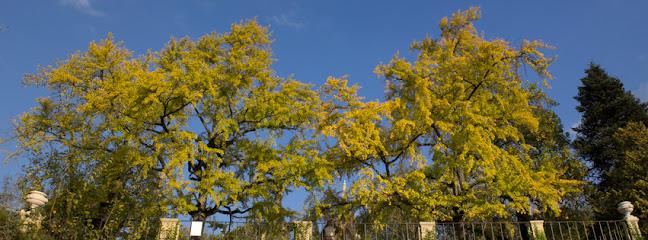
Ecological park Serra da Lousã
Explore the Ecological Park of Serra da Lousã, a stunning natural haven perfect for outdoor enthusiasts and families seeking adventure in Portugal's picturesque landscapes.
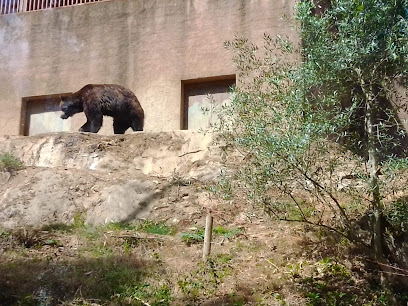
National Museum Machado de Castro
Explore the National Museum Machado de Castro, a cultural gem in Coimbra showcasing centuries of Portuguese art and history in a stunning architectural setting.
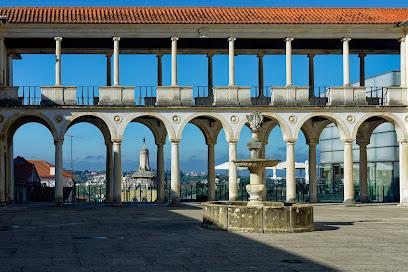
Fragas de São Simão
Explore the breathtaking beauty of Fragas de São Simão, a natural sanctuary in Portugal, perfect for adventurers and nature lovers alike.
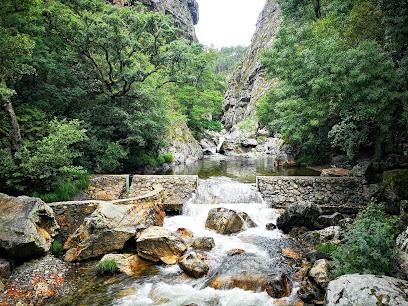
Torre de Dornes
Explore Torre de Dornes: A captivating castle offering breathtaking views, rich history, and a serene escape in the heart of Portugal.
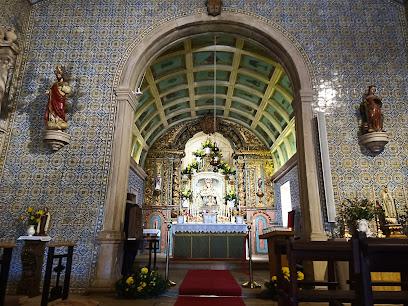
Escadas Monumentais da Universidade de Coimbra
Explore the stunning Escadas Monumentais da Universidade de Coimbra, a historical landmark that showcases Portugal's rich academic heritage and breathtaking architecture.
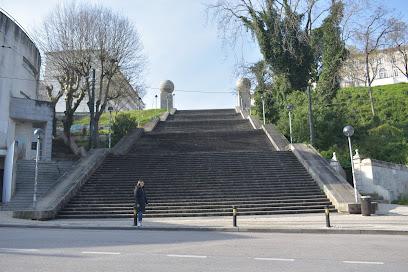
Miradouro do Penedo c'Abana / Penedo Oscilante
Discover Penedo Oscilante in Póvoa de Midões, a scenic spot offering mesmerizing views and a unique natural phenomenon perfect for nature lovers.
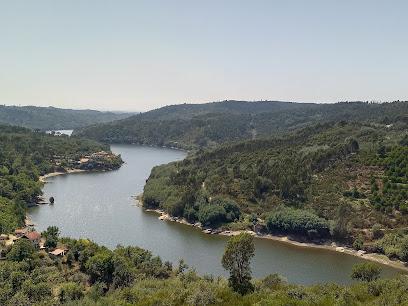
Terreiro das Bruxas
Discover the enchanting Terreiro das Bruxas in Lousã, a serene park perfect for picnics and nature walks steeped in local folklore.
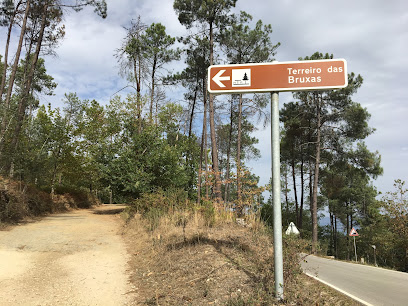
Museu Etnográfico Dr. Louzã Henriques
Explore the rich cultural heritage of Lousã at Museu Etnográfico Dr. Louzã Henriques, where history comes alive through fascinating exhibits.
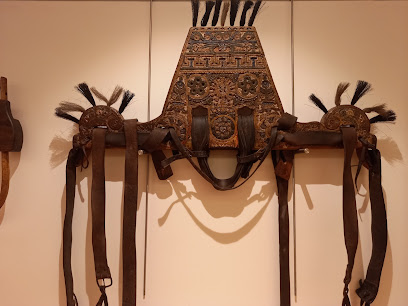
Ecomuseu da Serra da Lousã (Museu Municipal Prof. Álvaro Viana de Lemos)
Explore the Ecomuseu da Serra da Lousã: A unique blend of culture and nature in Coimbra, showcasing local heritage and ecological wonders.
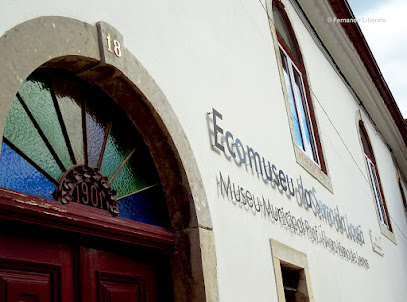
Vaqueirinho (Aldeias do Xisto)
Experience the stunning landscapes and rich heritage of Vaqueirinho in Aldeias do Xisto, a hidden gem near Coimbra for nature lovers and culture enthusiasts.
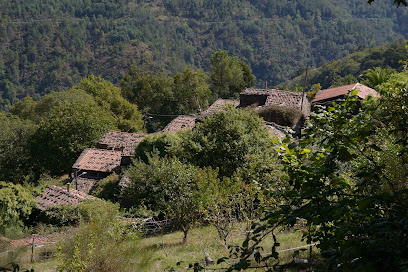
Parque eólico - Wind farm
Discover the Wind Farm in Lousã, a breathtaking destination where nature meets renewable energy, offering stunning views and an eco-friendly experience.
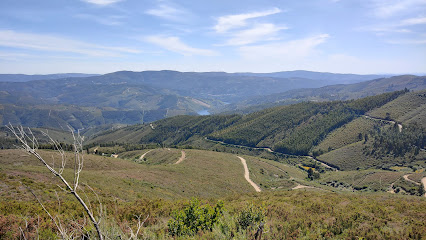
Poços da Neve do Coentral - Serra da Lousã
Explore the breathtaking beauty of Poços da Neve do Coentral in the Serra da Lousã, where nature and history intertwine for an unforgettable adventure.
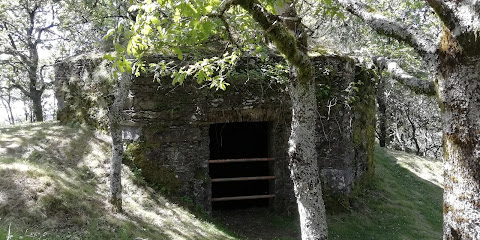
Tour In Village
Explore the rich culture, crafts, and scenic beauty of Tour In Village in Lousã, Portugal – a charming tourist attraction for all.
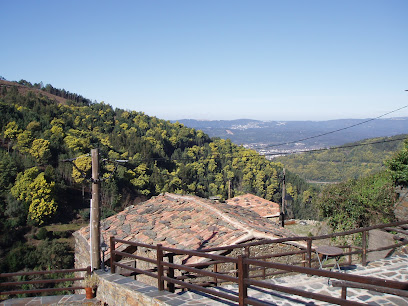
Antiga Casa da Guarda Florestal
Explore the Antiga Casa da Guarda Florestal, a serene historical site in Lousã, showcasing Portugal's beautiful landscapes and rich cultural heritage.
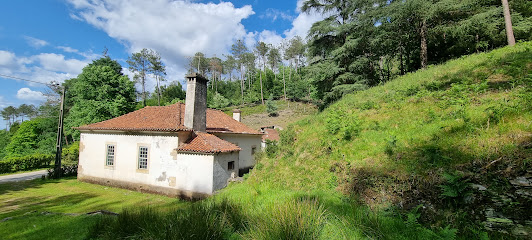
Essential places to dine
Casa Velha
Experience authentic Portuguese cuisine at Casa Velha in Lousã – where local flavors meet warm hospitality.
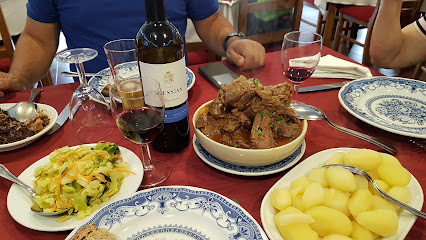
O Burgo
Experience authentic Portuguese cuisine at O Burgo in Lousã—where tradition meets taste amidst stunning landscapes.
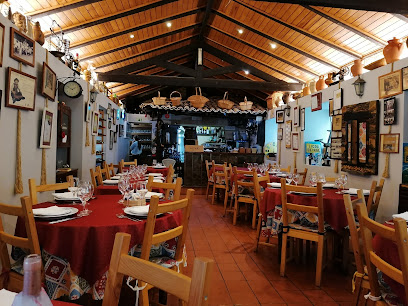
Tó dos Frangos
Savor authentic Portuguese barbecue at Tó dos Frangos in Lousã – a delightful spot for grilled meats and cozy dining.
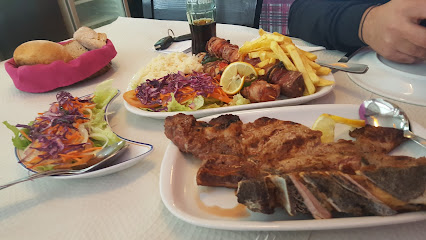
Q.b. Restobar
Discover authentic Portuguese cuisine at Q.b. Restobar in Lousã – where every meal tells a story.
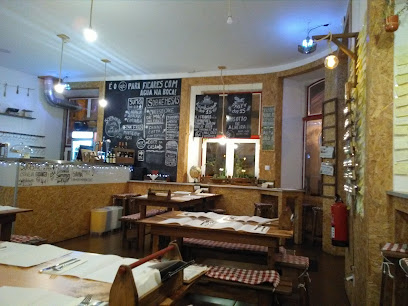
Churrasqueira Borges
Discover authentic Portuguese flavors at Churrasqueira Borges in Lousã – where delicious grilled meats meet warm hospitality.
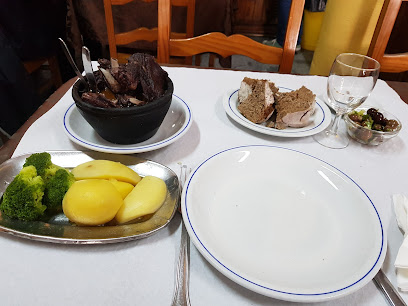
Taberna/Restaurante do Talasnal
Experience authentic Portuguese cuisine at Taberna/Restaurante do Talasnal in Lousã - where tradition meets taste.
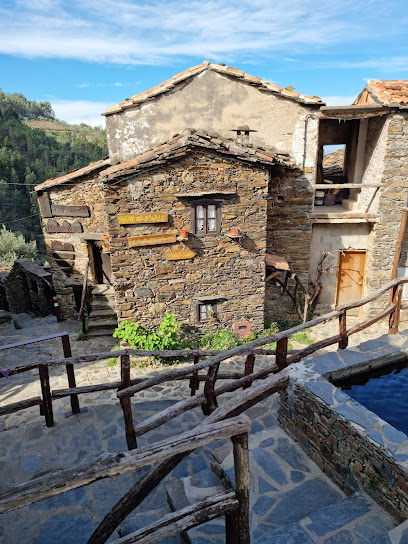
Taberna Burguesa
Experience authentic Portuguese cuisine at Taberna Burguesa in Lousã, where traditional flavors meet modern dining.
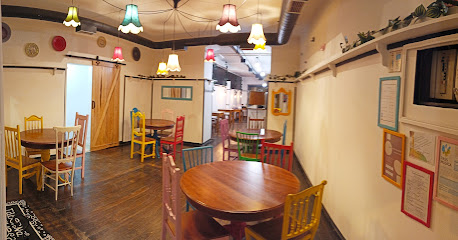
Foodstore
Experience authentic Portuguese cuisine at Foodstore in Lousã - where flavor meets affordability in a cozy setting.
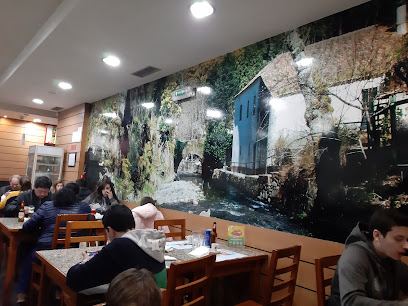
Villa Lausana
Experience authentic Portuguese flavors at Villa Lausana in Lousã, where tradition meets modern culinary excellence.
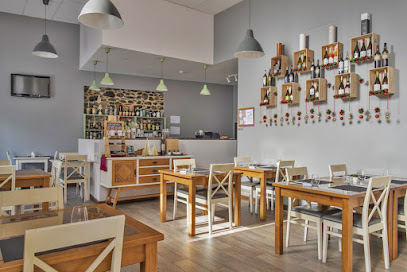
O Gato
Experience authentic Portuguese cuisine at O Gato in Lousã - where every dish tells a story.
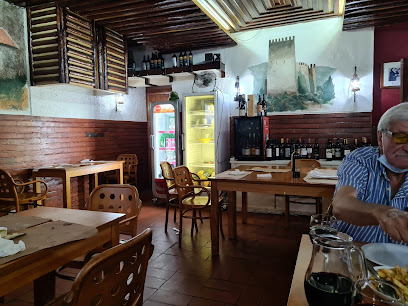
Muzza Cafe
Discover the charm of Muzza Cafe in Lousã – where every breakfast is a delightful experience infused with local flavors.
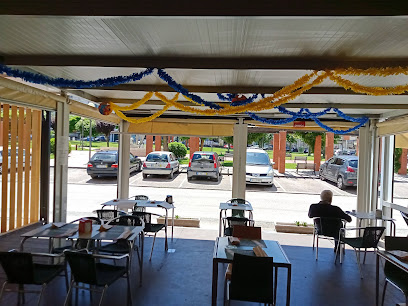
O Parque by ARCIL
Experience local flavors at O Parque by ARCIL in Lousã – where cozy atmosphere meets delicious cuisine.
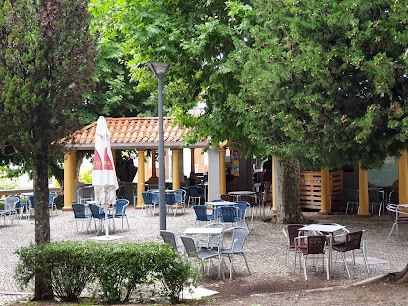
Churrascaria GalinhAmiga
Experience authentic Portuguese cuisine at Churrascaria GalinhAmiga in Lousã – savor delicious grilled meats in a welcoming atmosphere.
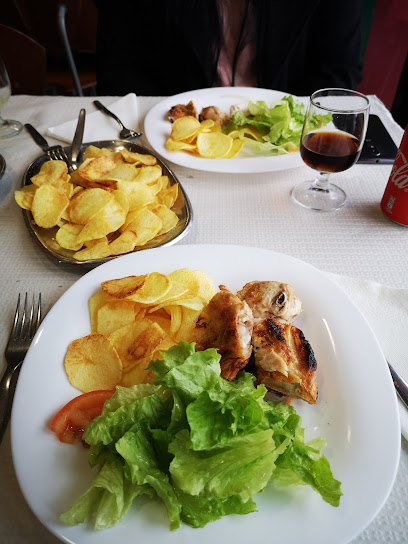
Salty Louzan
Discover the vibrant flavors of Portugal at Salty Louzan – your go-to spot for tapas and brunch in Lousã.
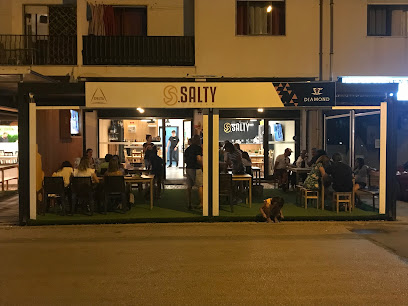
Ti Lena
Savor authentic Portuguese flavors at Ti Lena in Lousã - where every dish tells a story.
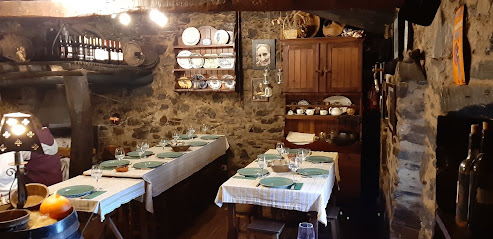
Markets, malls and hidden boutiques
Forum Coimbra
Discover the vibrant shopping experience at Forum Coimbra, where a variety of stores, dining options, and entertainment await in the heart of the city.
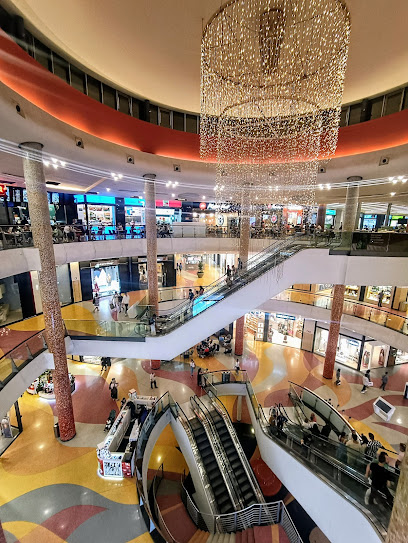
Alma Shopping
Discover the vibrant shopping experience at Alma Shopping in Coimbra, featuring diverse stores, delicious dining, and family-friendly entertainment.
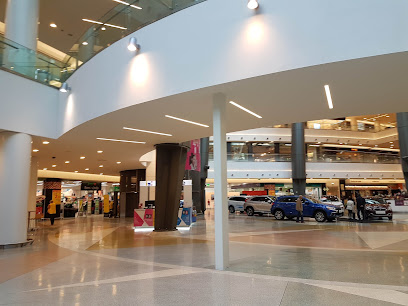
Castle of Lousã
Experience the breathtaking views and rich history of the Castle of Lousã, a medieval gem nestled in the scenic hills of Portugal.
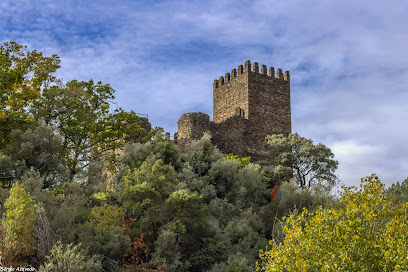
Candal (Aldeias do Xisto)
Explore the picturesque village of Candal in Aldeias do Xisto, where traditional schist houses meet stunning natural landscapes.
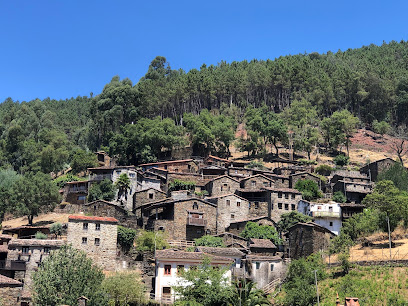
Continente Modelo
Explore local flavors at Continente Modelo, Lousã's vibrant supermarket with fresh bakery items, quality meats, and a variety of local products.
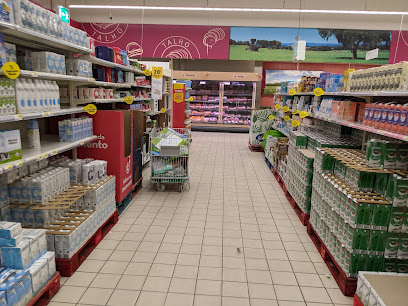
Pastelaria São Silvestre
Discover the delightful world of pastries and donuts at Pastelaria São Silvestre in Lousã, a delicious stop for every sweet tooth.
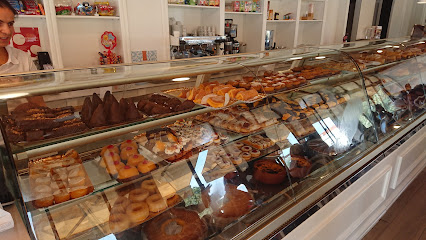
Casal Novo (Aldeias do Xisto)
Explore the serene beauty and rich culture of Casal Novo, a charming village nestled in the stunning landscapes of Aldeias do Xisto.
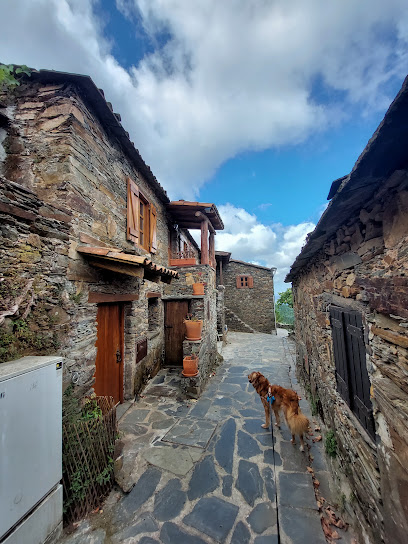
Gelataria Própoli
Discover the delightful flavors of Gelataria Própoli in Lousã, where every scoop is a celebration of quality and creativity.

Cerdeira - Home for Creativity
Discover the inspiring Cerdeira - Home for Creativity, where nature meets artistic expression in the heart of Lousã.

Cascata do Candal
Discover the breathtaking Cascata do Candal, a stunning waterfall in Portugal, perfect for nature lovers and adventure seekers alike.
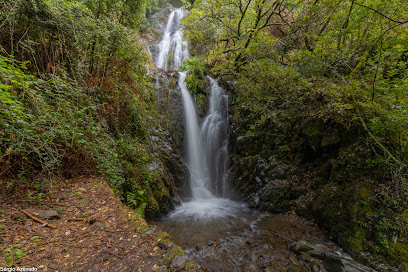
Serra da Lousã
Explore the breathtaking landscapes and rich culture of Serra da Lousã, a hidden gem in Portugal's stunning mountainous region.
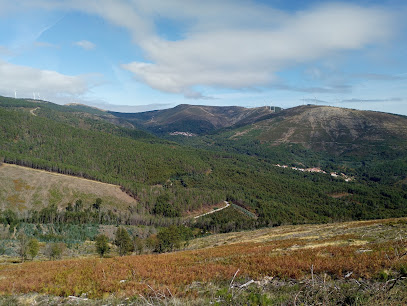
Lousamotos-motos E Equipamentos Lda
Discover Lousamotos in Lousã, the ultimate motorcycle shop for riders seeking adventure and quality gear in the heart of Portugal.

BricoLouzan
Explore BricoLouzan in Lousã for a unique hardware shopping experience, offering a diverse range of tools and expert advice that inspires creativity.
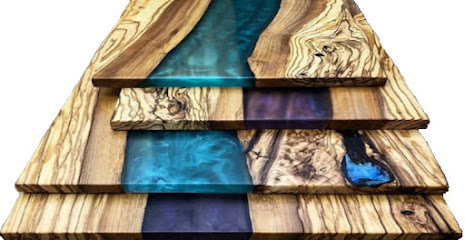
Worten (Lousã)
Discover a world of electronics at Worten in Lousã, your go-to destination for home appliances, gadgets, and tech accessories.
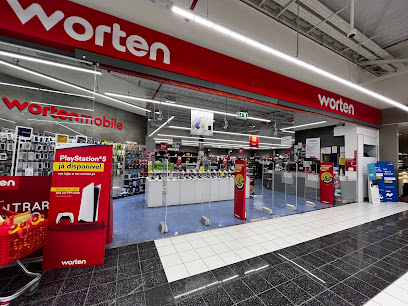
A Loja da Viscondessa
Explore A Loja da Viscondessa in Lousã for unique Portuguese handicrafts, organic delights, and exquisite local wines - a true cultural experience.
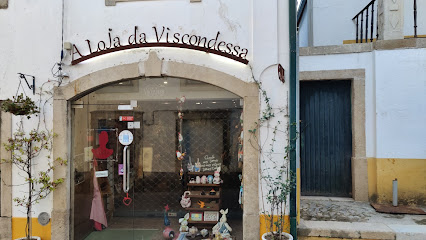
Essential bars & hidden hideouts
O Burgo
Discover the rich flavors of Portuguese cuisine at O Burgo, a traditional restaurant in Lousã known for its authentic dishes and warm atmosphere.
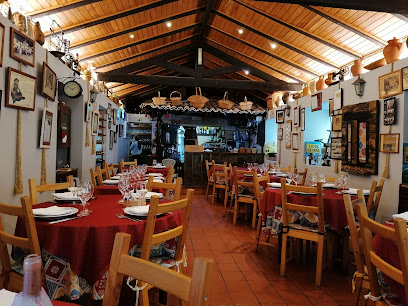
Bar da Praia Fluvial da Bogueira
Experience the essence of Portuguese hospitality at Bar da Praia Fluvial da Bogueira, where local flavors meet stunning riverside views.
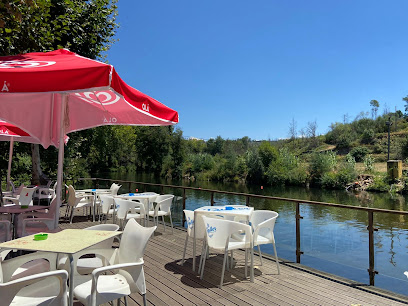
Q.b. Restobar
Savor the authentic flavors of Portugal at Q.b. Restobar in Lousã, where local ingredients and a cozy atmosphere come together.
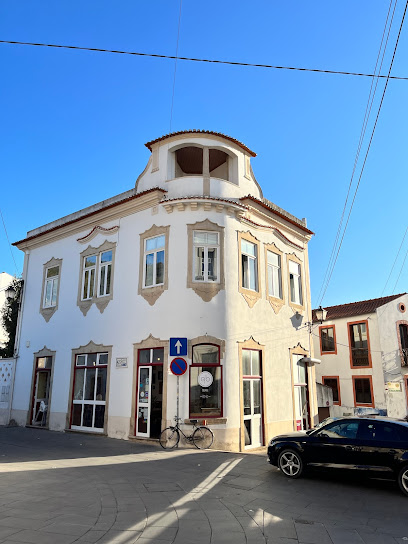
BarBearia Marmousets
Discover BarBearia Marmousets in Lousã – where a sophisticated barbering experience meets a vibrant bar atmosphere for ultimate relaxation.
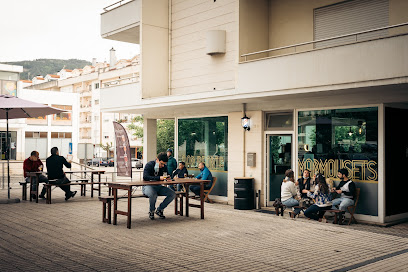
Taberna Burguesa
Experience the authentic flavors of Portugal at Taberna Burguesa, where traditional cuisine meets a cozy atmosphere in Lousã.
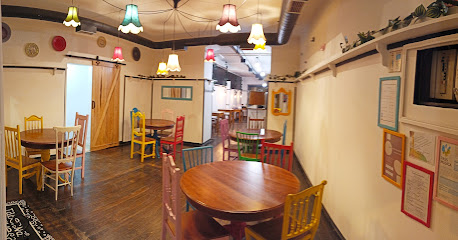
Villa Lausana
Discover the authentic taste of Portugal at Villa Lausana, where traditional and vegan cuisines meet in a cozy atmosphere.
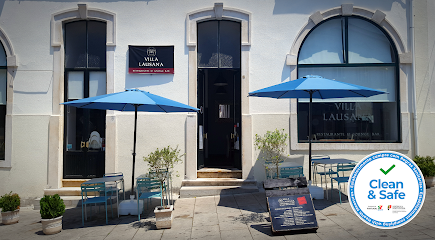
O Parque by ARCIL
Discover the charm of O Parque by ARCIL in Lousã, where local flavors meet a warm atmosphere – perfect for every traveler.
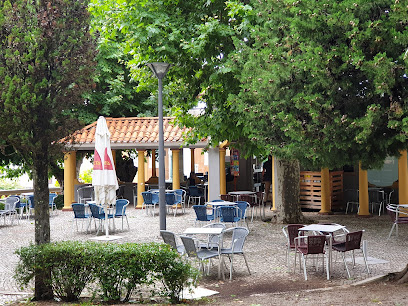
Salty Louzan
Discover the vibrant flavors of Portuguese tapas and brunch at Salty Louzan, a culinary haven in Lousã, perfect for food lovers.
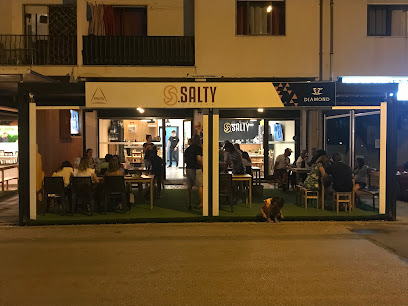
Window's Bar
Discover the lively charm of Window's Bar in Lousã, where great drinks and a friendly atmosphere come together for an unforgettable night out.
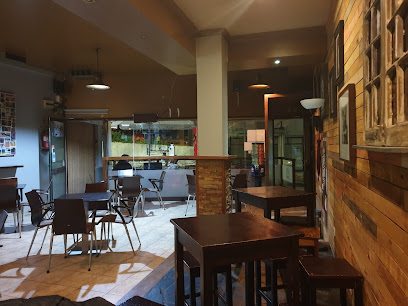
Ti Lena
Discover the flavors of Portugal at Ti Lena, a delightful restaurant in Lousã offering traditional dishes in a cozy atmosphere.
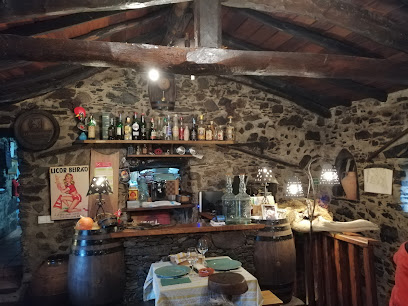
94 Café Bar
Experience the vibrant atmosphere of 94 Café Bar in Lousã, where delightful drinks and local charm come together in a perfect blend.
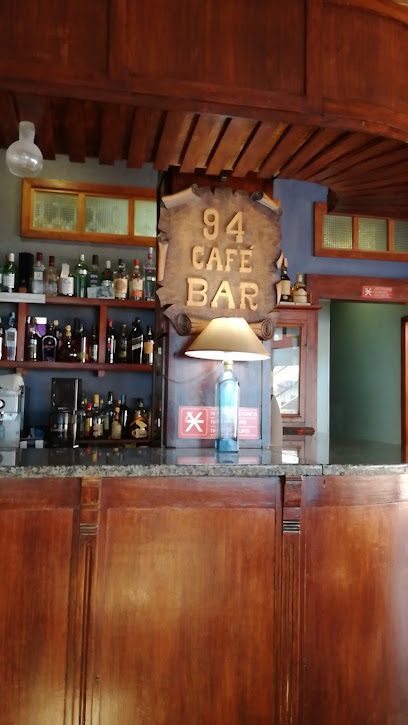
Restaurante AVÓ
Experience the authentic taste of Portugal at Restaurante AVÓ, where traditional cuisine meets a warm, inviting atmosphere in Lousã.
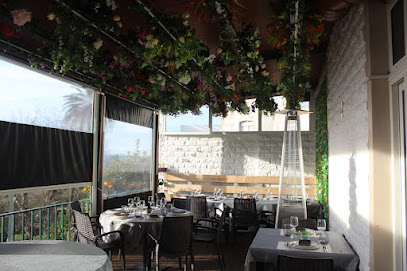
Almas Perdidas Bar
Discover the vibrant atmosphere of Almas Perdidas Bar in Miranda do Corvo, where local culture meets relaxed enjoyment in a charming setting.
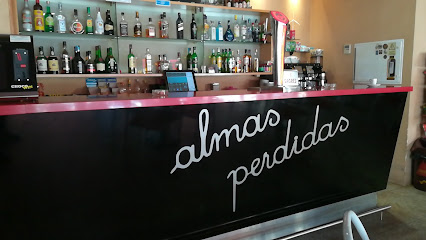
Bar o Curral
Experience the charm of Bar o Curral in Lousã, where local culture meets breathtaking nature amidst a warm and inviting atmosphere.
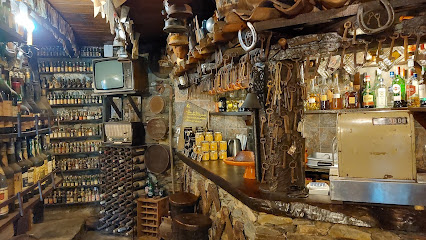
Louzanpark
Experience the vibrant atmosphere of Louzanpark, Lousã's premier sports bar, where great food and live sports come together for an unforgettable outing.
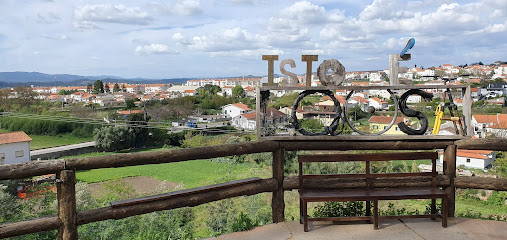
Local Phrases about Serra da Lousã
-
- HelloOlá
[oh-lah] - GoodbyeAdeus
[ah-deh-oosh] - YesSim
[seem] - NoNão
[now] - Please/You're welcomePor favor/De nada
[poor fah-vohr/deh nah-dah] - Thank youObrigado
[oh-bree-gah-doo] - Excuse me/SorryDesculpe
[deh-skool-peh] - How are you?Como está?
[koh-moh ehs-tah] - Fine. And you?Bem. E você?
[behn/eh voh-seh] - Do you speak English?Fala inglês?
[fah-lah een-glehs] - I don't understandNão entendo
[now ehn-tehn-doo]
- HelloOlá
-
- I'd like to see the menu, pleaseGostaria de ver o menu, por favor
[goh-stah-ree-ah deh vehr ooh meh-noo/por fah-vohr] - I don't eat meatNão como carne
[now koh-moo kahr-neh] - Cheers!Saúde!
[sow-deh] - I would like to pay, pleaseGostaria de pagar, por favor
[goh-stah-ree-ah deh pah-gahr/por fah-vohr]
- I'd like to see the menu, pleaseGostaria de ver o menu, por favor
-
- Help!Socorro!
[soh-koh-roh] - Go away!Vai embora!
[vah-ee ehm-boh-rah] - Call the Police!Chame a Polícia!
[shah-meh ah poh-lee-see-ah] - Call a doctor!Chame um médico!
[shah-meh oom meh-dee-koo] - I'm lostEstou perdido
[eh-stoh pehr-dee-doo] - I'm illEstou doente
[eh-stoh doo-ehn-teh]
- Help!Socorro!
-
- I'd like to buy...Gostaria de comprar...
[goh-stah-ree-ah deh kohm-prahr] - I'm just lookingEstou só a ver
[eh-stoh soh ah vehr] - How much is it?Quanto custa?
[kwan-toh koosh-tah] - That's too expensiveIsso é muito caro
[ee-soo eh moo-ee-tooh kah-roo] - Can you lower the price?Pode baixar o preço?
[poh-deh bahy-shahr ooh preh-soo]
- I'd like to buy...Gostaria de comprar...
-
- What time is it?Que horas são?
[keh oh-rahz sow] - It's one o'clockÉ uma hora
[eh oo-mah oh-rah] - Half past (10)Meia hora (10)
[may-ah oh-rah] - MorningManhã
[mahn-yah] - AfternoonTarde
[tahr-deh] - EveningNoite
[noy-teh] - YesterdayOntem
[ohn-tehm] - TodayHoje
[oh-zheh] - TomorrowAmanhã
[ah-mahn-yah] - 1Um
[oom] - 2Dois
[doh-eez] - 3Três
[trehs] - 4Quatro
[kwah-troh] - 5Cinco
[seen-koh] - 6Seis
[saysh] - 7Sete
[seh-teh] - 8Oito
[oy-toh] - 9Nove
[noh-veh] - 10Dez
[dehz]
- What time is it?Que horas são?
-
- Where's a/the...?Onde fica o/a...?
[ohn-deh fee-kah oh/ah] - What's the address?Qual é o endereço?
[kwahl eh oh ehn-deh-reh-soo] - Can you show me (on the map)?Pode mostrar-me (no mapa)?
[poh-deh moh-strahr-meh/noo mah-pah] - When's the next (bus)?Quando é o próximo (autocarro)?
[kwan-doo eh oh proh-see-moo/ow-toh-kah-roo] - A ticket (to ....)Um bilhete (para ...)
[oom bee-yeht/ pah-rah]
- Where's a/the...?Onde fica o/a...?
History of Serra da Lousã
-
The history of Serra da Lousã dates back to ancient times, with evidence of human habitation stretching back to the Neolithic period. Archaeological findings in the region include various tools, pottery, and remnants of early settlements, indicating a vibrant prehistoric community. The lush forests and abundant water sources provided an ideal environment for early settlers.
-
During the Roman era, Serra da Lousã was part of the vast network of territories under Roman control. The Romans were drawn to the region for its natural resources, including timber and minerals. Remnants of Roman roads and bridges can still be found, showcasing the engineering prowess of the empire. These ancient pathways facilitated trade and movement, leaving a lasting mark on the landscape.
-
The medieval period saw the rise of fortified structures across Serra da Lousã. The most notable is the Castle of Lousã, a 12th-century fortification built to defend against Moorish invasions. Surrounding the castle are picturesque schist villages like Talasnal, Cerdeira, and Casal Novo. These villages, with their narrow winding streets and traditional stone houses, offer a glimpse into the medieval way of life and have been meticulously preserved.
-
Religious devotion played a significant role in the history of Serra da Lousã. The region is dotted with chapels, churches, and sanctuaries. One of the most prominent is the Sanctuary of Nossa Senhora da Piedade, located near the Castle of Lousã. This sanctuary has been a pilgrimage site for centuries, attracting visitors with its serene setting and historical significance.
-
Serra da Lousã played a strategic role during the Portuguese Restoration War (1640-1668), which sought to restore Portuguese independence from Spain. The dense forests and rugged terrain provided a natural defense, making it an ideal location for resistance fighters. Local legends and folktales from this period speak of brave warriors and cunning strategies employed to thwart Spanish forces.
-
The 19th and 20th centuries brought significant economic changes to Serra da Lousã. The region saw the development of the wool industry, with numerous mills and factories emerging. This industrial boom led to increased prosperity and the growth of local communities. However, the mid-20th century saw a decline in traditional industries, prompting a shift towards tourism and conservation efforts to preserve the natural and cultural heritage of Serra da Lousã.
-
In recent decades, Serra da Lousã has become a focal point for conservation and sustainable tourism. Efforts to protect the native flora and fauna, alongside the restoration of historical sites, have been paramount. The creation of nature reserves and hiking trails has made the area a popular destination for eco-tourists and history enthusiasts alike. These initiatives aim to balance the preservation of Serra da Lousã’s rich heritage with the needs of modern visitors.
Serra da Lousã Essentials
-
Serra da Lousã is located in the central region of Portugal. The nearest major city is Coimbra, approximately 30 kilometers away. Travelers can fly into Lisbon Portela Airport (about 200 kilometers away) or Porto Airport (around 150 kilometers away). From these airports, you can either rent a car, take a train to Coimbra, and then a local bus or taxi to Serra da Lousã. The journey from Coimbra to Serra da Lousã typically takes around 45 minutes by road.
-
Once in Serra da Lousã, the best way to explore the area is by car, as public transportation options are limited. Car rentals are available in Coimbra. Local buses do serve the area, but they may not run frequently. Cycling is also a popular way to explore the rugged terrain and scenic routes. Taxis are available but can be pricey for longer distances.
-
The official currency in Portugal is the Euro (EUR). Credit cards are widely accepted in hotels, restaurants, and shops in Serra da Lousã. However, it is advisable to carry some cash, especially for smaller establishments or rural areas. ATMs are available but may be sparse in more remote areas, so it's wise to withdraw sufficient cash when in larger towns or cities.
-
Serra da Lousã is generally a very safe destination for tourists. However, it is always advisable to take standard precautions. Avoid walking alone in isolated areas after dark and keep an eye on personal belongings in crowded places. While there are no specific high-crime areas targeting tourists, staying vigilant and aware of your surroundings is always best.
-
In case of an emergency, dial 112 for immediate assistance. This number connects you to medical, fire, and police services. The nearest hospital is in Coimbra, which has comprehensive medical facilities. Pharmacies are available in the town of Lousã for minor health issues and over-the-counter medications. It is recommended to have travel insurance that covers medical emergencies.
-
Fashion: Do wear comfortable walking shoes and outdoor clothing suitable for hiking and exploring. Avoid flashy attire. Religion: Do respect local religious customs. When visiting churches or religious sites, dress modestly and keep noise to a minimum. Public Transport: Do be polite and give up your seat to elderly passengers. Don't eat or drink on public transport. Greetings: Do greet people with a handshake or a friendly 'Bom dia' (Good day). Eating & Drinking: Do try the local cuisine and wines. Don't refuse food or drink offerings, as it is considered impolite.
-
To experience Serra da Lousã like a local, visit the traditional schist villages such as Talasnal and Cerdeira, where you can see traditional architecture and buy local crafts. Engage with locals who are often friendly and eager to share stories about their heritage. Don't miss the Lousã Castle and the surrounding natural park, which offer stunning views and hiking opportunities. For a unique experience, try local delicacies such as 'Chanfana' (goat stew) and 'Tigelada' (a traditional dessert).
Trending Landmarks in Serra da Lousã
-
Praia das Rocas
-
Castle of Lousã
-
Ecological park Serra da Lousã
-
Trevim Swing
-
Castle of Penela
-
Candal (Aldeias do Xisto)
-
Fragas de São Simão
-
Cabril do Ceira
-
Praia Fluvial da Senhora da Graça
-
Miradouro do Penedo da Saudade
-
Casal Novo (Aldeias do Xisto)
-
Isto é Lousã
-
Cerdeira - Home for Creativity
-
Escadas Monumentais da Universidade de Coimbra
-
Terreiro das Bruxas
Nearby Cities to Serra da Lousã
-
Things To Do in Tomar
-
Things To Do in Viseu
-
Things To Do in Aveiro
-
Things To Do in Caldas da Rainha
-
Things To Do in Lamego
-
Things To Do in Porto
-
Things To Do in Vila Real
-
Things To Do in Guimarães
-
Things To Do in Braga
-
Things To Do in Évora
-
Things To Do in Lisbon
-
Things To Do in Badajoz
-
Things To Do in Sintra
-
Things To Do in Setúbal
-
Things To Do in Cascais









